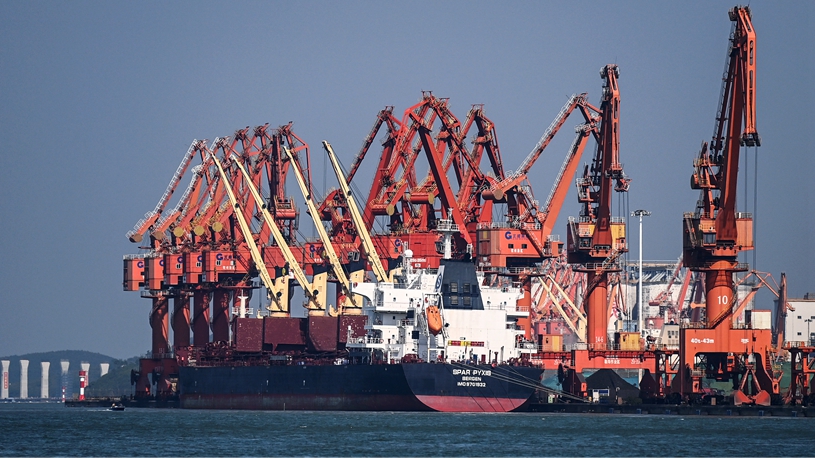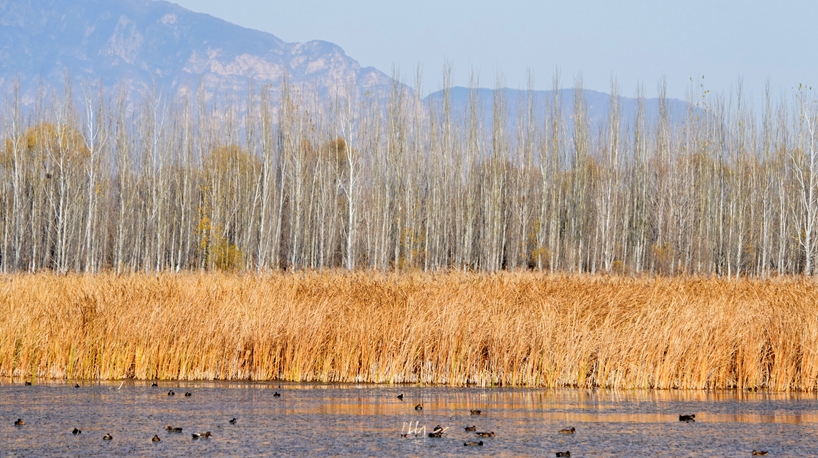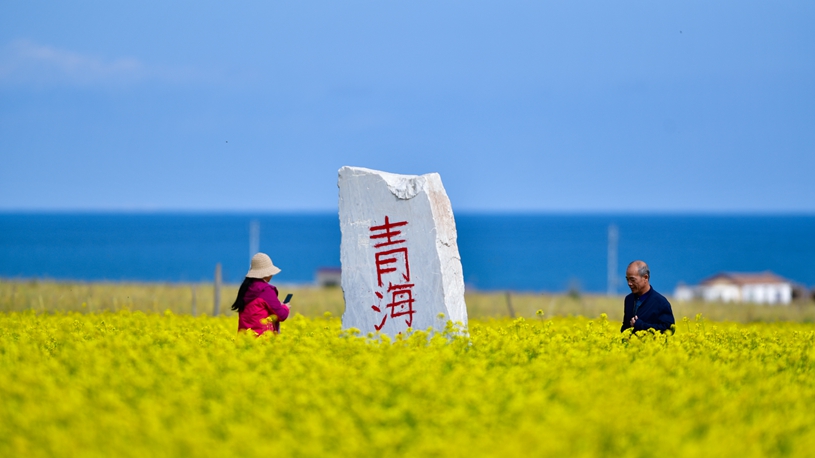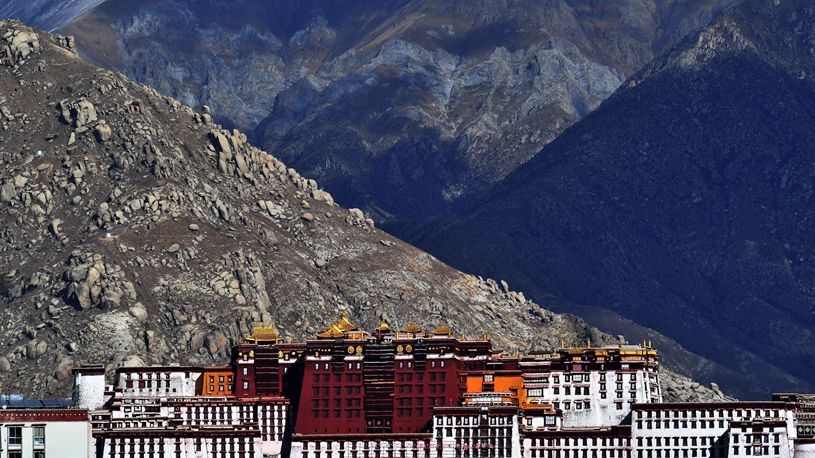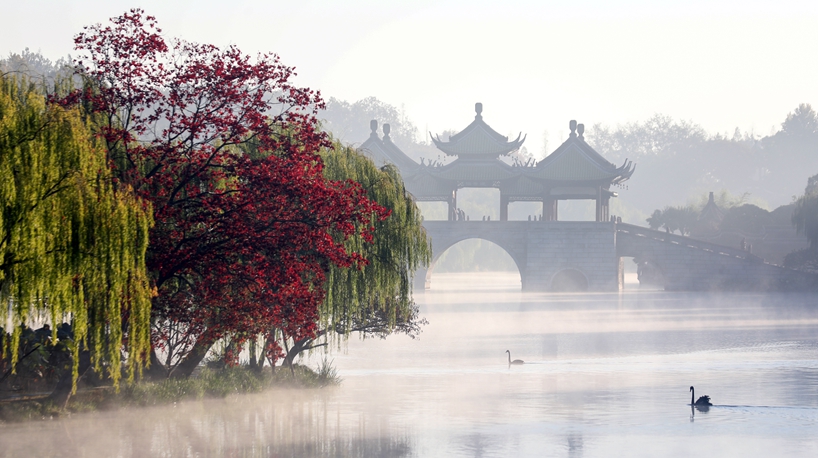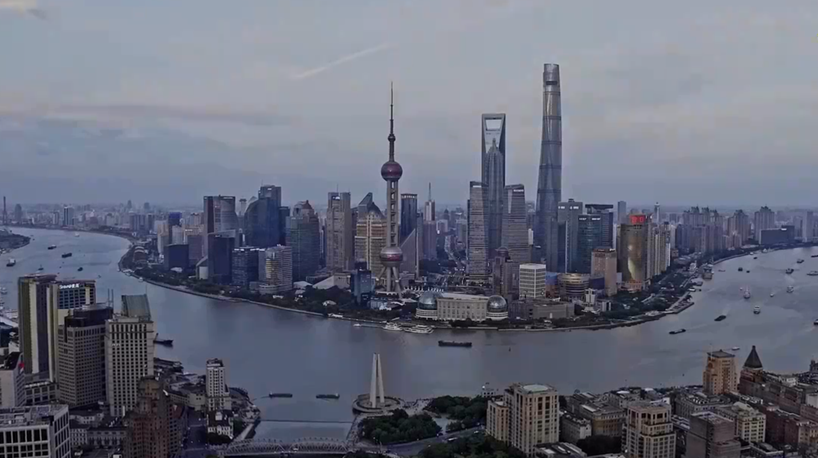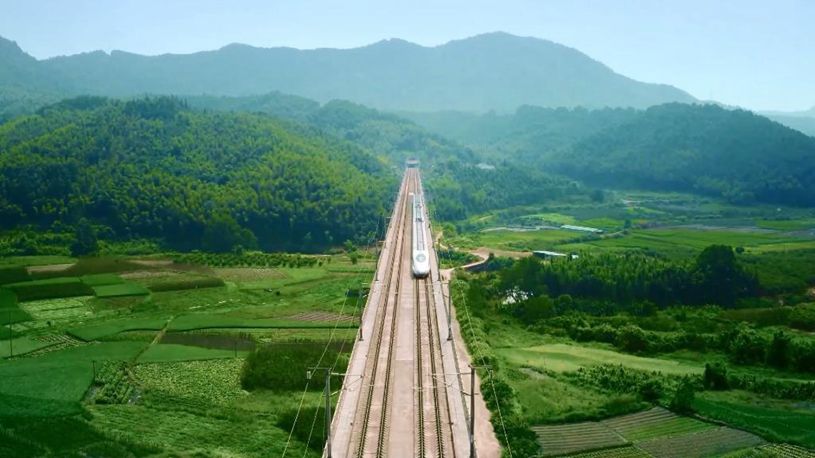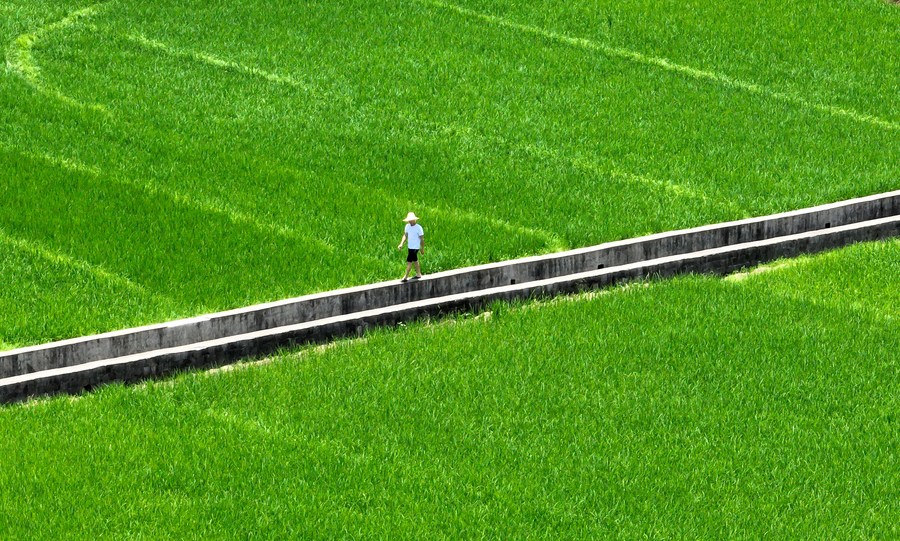
Aerial photo taken on Aug. 23, 2022 shows a villager checking water flow in a canal for irrigation in Chuanshan Township, Liujiang District of Liuzhou City in south China's Guangxi Zhuang Autonomous Region. (Photo by Li Hanchi/Xinhua)
Ken Bellamy, president of an Australian biotechnology firm, said his company is delighted to be working in enviromnent programs in China because not only there is a will, but there is the capacity.
CANBERRA, Nov. 5 (Xinhua) -- China's determination to stay on track for green, low-carbon and circular development is invaluable and a great opportunity for international cooperation, said an Australian business partner with China.
VRM Biologik, a biotechnology firm that has cooperated with its Chinese partners in more than 50 projects, has developed technologies to restore degraded topsoil, clean and neutralize damaging environmental pollutants, and naturally remove common domestic and industrial residues from surface.
The company has been working to transform global agriculture through non-chemical and non-toxic farming methods.
In 2020, the Australian company entered a partnership with businesses in the coal-rich Shanxi province in north China. So far, the technologies of soil restoration and chemical-free cleaning in environment have been used in more than 50 projects in China.
"In the lead-up to that partnership forming, we participated in a very careful program of evaluation and experience, which saw many types of farms and recycling operations in many places in China gain experience with our technology," Ken Bellamy, president of VRM Biologik, said in an interview with Xinhua.
Talking about cooperation projects with Chinese partners, Bellamy said he was impressed by some "really incredible detailed and careful research and evaluation", one of which was done by the Beijing Academy of Agriculture and Forestry Sciences in Miyun District of northeast Beijing.
It was around the full circular economy impacts of a program which targets overall improved food production while protecting the water supply to the city.
"We have been amazed by the academic courage and willingness to look for solutions cooperatively which we have experienced in these programs," he said.
During visits to different parts of China, Bellamy witnessed progress in environment protection of the country.
"There is no doubt that China has worked hard to feed its people over a long period of time. We have seen that the soil in some parts of the country has become a little tired" over thousands of years of production," he said.
"It is also encouraging to see how quickly that soil has been rejuvenated as some of our programs have begun to take effect."
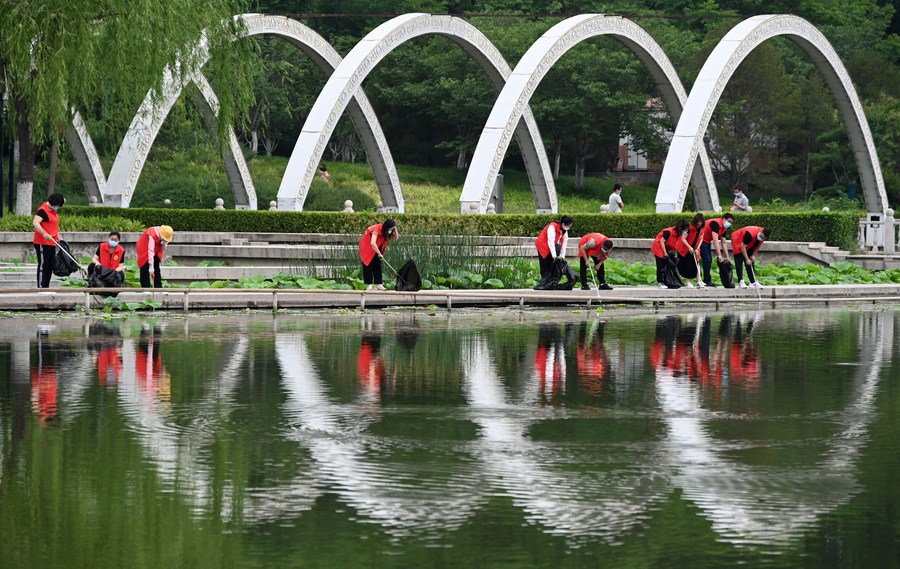
Volunteers collect wastes at a park in Congtai District of Handan, north China's Hebei Province, June 4, 2022. (Photo by Hao Qunying/Xinhua)
According to him, some positive changes have been seen in recent years, such as the reappearance of native earthworms in some very depleted soils in Shanxi, as well as the novel idea in south China's island province of Hainan to achieve carbon neutrality in egg production when animal farming is generally recognized as "pollutive and smelly."
He also saw the "concerted effort" to move away from disposal or burning of waste, with millions of tons of organic material now being converted for decarbonization in food production systems.
"This also helps to reduce dependency on fertilizer and water resources," he said.
In July 2021, China unveiled a plan to promote circular economy for the next five years, aiming to basically establish a resources recycling system in the country by 2025 as part of efforts to achieve carbon peak and neutrality goals.
The State Council, China's cabinet, issued a circular in February 2021, urging efforts to build an economic system featuring green, low-carbon and circular development, and to promote an overall green transformation of the economy and society.
Bellamy said their company is delighted to be a small part of this program.
"We are delighted to be working in this area in China, because not only there is a will, but there is the capacity," he said.
"The planning is done over a long period of time. And there's a capacity to implement that plan and a determination to stay on the track. This is invaluable."

Sanitary workers collect floats on a river in Suzhou, east China's Jiangsu Province, June 4, 2022. (Photo by Hang Xingwei/Xinhua)
The coming Dec. 21 marks the 50th anniversary of the diplomatic relations between China and Australia.
During those years Bellamy has travelled between the two countries multiple times and made friends in China, which, he said, is "one of the most fascinating" among more than 50 countries he has visited.
"I really love the sense of history and the fact that there is a deep sense of respect for the earth and for each other present in the people we meet there. I am also a fan of the mix between bustling cities and peaceful countryside," he said.
According to him, there's "a natural fit" between the two countries. China feeds nearly one-fifth of the world's population with less than 9 percent of the world's total arable land.
Meanwhile, he added, Australia has about 7.5 percent of the world's arable land -- and a lot more that can be productive at lower intensity -- with a very small population by comparison.
"One of my best friends in high school was Chinese. I think a lot of people in Australia have had that experience," he said.
"Relationships among friends and colleagues can sometimes be tricky. But in the end there are always ways to cooperate."
Citing the Chinese saying "bread is the staff of life", Bellamy was optimistic: "I foresee that when we all sit down to eat together, this will be the piece that keeps us working together longest." ■

